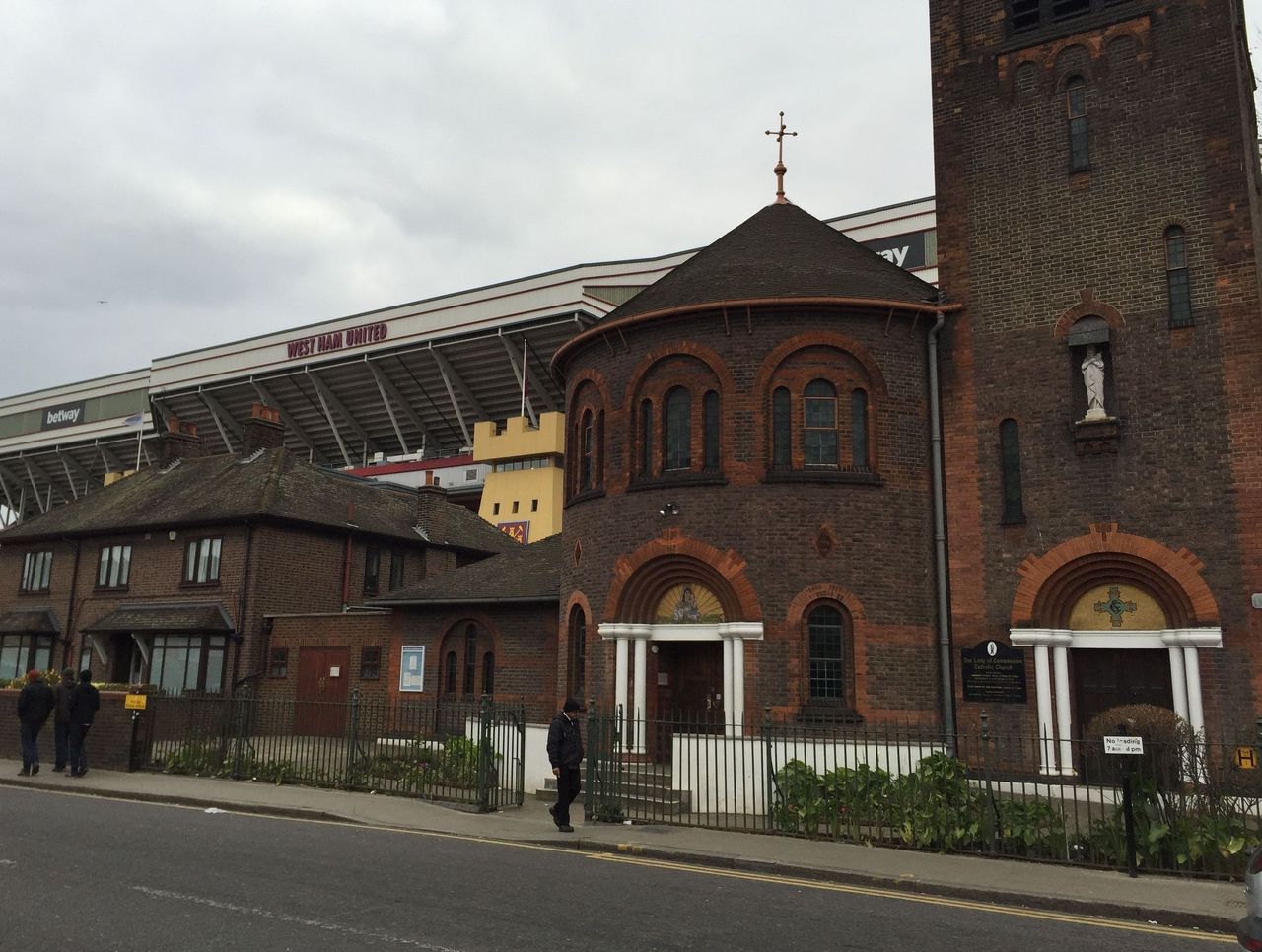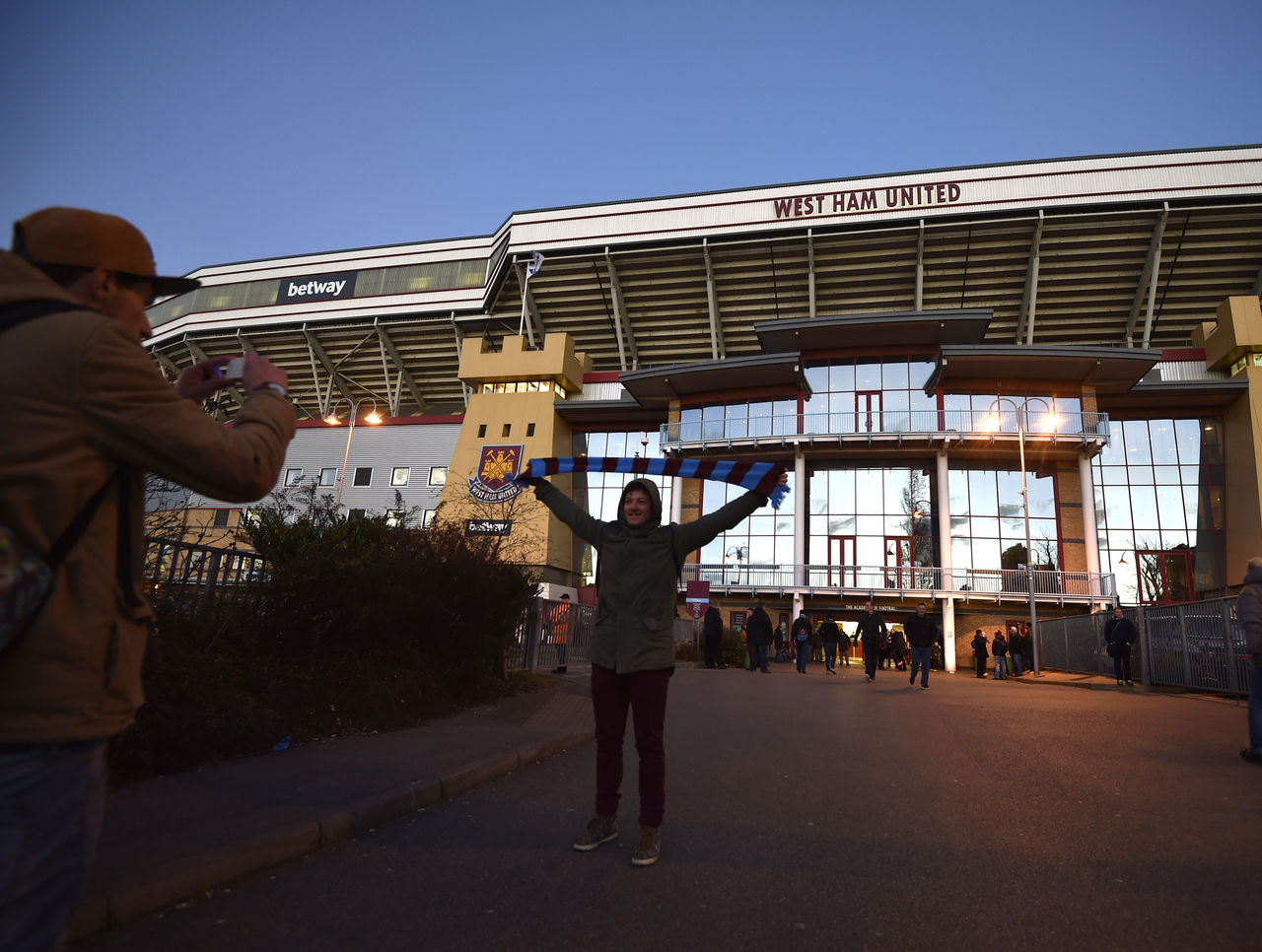Farewell Boleyn: West Ham leaves home to join Premier League's elite
West Ham United is leaving the Boleyn Ground, its home for 112 years, out of the heart of a working-class neighbourhood and into the main venue of the 2012 Olympic Games.
It's leaving behind familiar establishments, among them the Boleyn Pub, where mates met for post-match pints; Nathan's Pies and Eels, where fathers and sons had their pre-match meals and so many more little places that survived in this East London ecosystem.
West Ham is leaving some of these businesses to die, unable to support themselves on their own.
Some will adapt, as evolution has demanded of us before, but the bottom line is that this club is leaving a community for the isolated confines of a legacy project.
On Tuesday, West Ham hosts its final match at the Boleyn Ground, or Upton Park as it's also known, against Manchester United. They will never blow those famous bubbles in the air here again.

Many have made peace with the move. There's a feeling that it's progress, a necessary evil in an attempt join the Premier League's elite. Trading a 35,000-capacity arena for one that fits almost double that, West Ham has already sold more than 50,000 season tickets, a sign of acceptance and even anticipation amongst a loyal fan base.
Meanwhile, Upton Park is bracing for the wrecking ball. There are plans to build more than 800 properties on the very same land, leaving no trace of the past. Even the statue of England's 1966 World Cup winners, including the West Ham legend Bobby Moore, is heading to the Olympic Stadium a few kilometres away in Stratford.
The club is auctioning off pieces of its history - seats, goal posts, parts of the entrance gates - as a way for supporters to hold on to their history. But it's impossible to bottle up and transfer the atmosphere on matchdays. The new place won't have the same character, the various traders around the block, the old touts selling fanzines out of boxes, the plain apartment buildings looking down on the pitch, or even the same noise. The seats won't be right on top of the pitch like it is at Upton Park, where there's never been a running track.

The sight of the co-chairmans David Gold and David Sullivan driving their Rolls-Royces is at odds with the neighbourhood, although it will look more at home in the new one. Upton Park is just so much a part of its humble surroundings that anything extravagant immediately sticks out.
It has been renovated over the years - a V-1 flying bomb destroyed the south-west corner in 1944 - but it's still served as a proper old-fashioned football ground. A small chapel sits just in front, and it's said West Ham players have sought God's blessings there. Recently, manager Slaven Bilic has come in to light a candle.

Thousands of fans walk by it as they head to the match. On this particular day, in the lead-up to a lunchtime kick-off against Sunderland, the bitterly cold weather is the topic of conversation. Fans come prepared with homemade marmalade, which is allowed in, and the concessions stands inside the stadium are mainly selling hot chocolate. Alcohol can be had later.
It's coldest at half-time, when many leave their seats. It's warmest once the action resumes, with everyone invested, children chanting for Dimitri Payet, grandfathers and grandmothers taking the game in quietly, others shouting obscenities at the referee. This fan base is truly open to everyone.
Some of the older fans have made the decision to stay behind. They will not travel to the Olympic Stadium. One fanzine, Over Land and Sea, will cease publication after almost three decades of serving West Ham supporters. These are East Enders who cherish the old West Ham, the real one, their Hammers.

The fact that the taxpayer is footing a large chunk of the bill for the Olympic Stadium has also left a sour taste in the mouths of many loyal followers. West Ham is paying just £2.5 million a year to rent the place, and it's not bothered with operating costs. A club once based on honest, hard-working values has made headlines for being dishonest about the entire deal, and campaigners worked tirelessly to make it public.
In the end, West Ham is chasing another dream, where marquee players choose the Hammers over the likes of Arsenal, Chelsea, or Tottenham, where London is more claret and blue. Vice-chairman Karren Brady said that some stars have turned down moves away from West Ham just to be a part of the Olympic Stadium project. No doubt Payet is one of them.
So the club is leaving the Boleyn Ground for something it thinks is better for the future. It remains to be seen if West Ham will honour its past.